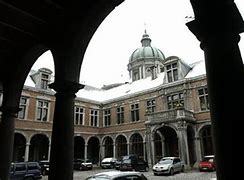The Namur Court of First Instance has rejected an application by the Belgian State for interim measures against certain publications by Sudinfo media on the Qatargate affair.
The judge ruled that the request to delete the media's publications on Qatargate was unfounded and found that there had been a prior request for censorship, which was contrary to the Constitution.
A federal police investigator, supported by the State - represented by Interior Minister Annelies Verlinden - had accused Sudinfo of being identifiable in various publications concerning the Qatargate scandal.
The case was related to an investigation by the federal prosecutor's office into alleged acts of corruption within the European Parliament. The police investigator had taken the matter to court as a matter of urgency, asking the newspaper to delete the publications in question - which are still available online - and seeking to have the daily prohibited from publishing "similar" content in future.
In a decision handed down on Tuesday and shared on Thursday by Sudinfo and the Association of Professional Journalists (AJP), the Namur court ruled that these requests were unfounded.
It emphasised the "bold" nature of the State's request for preventive censorship, which it deemed "obviously contrary to the Constitution."
The judge also considered that the urgent nature of the complaint, which was the basis for the request for interim measures, had not been substantiated. Nor did the State and its official specify the "significant damage" they had allegedly suffered.
With this decision, the court completely exonerated Sudmédia and its journalist, who was cited by name in the complaint.
In a reaction sent to Belga News Agency, Sudinfo welcomed the "unequivocal" decision of the court.
"In the current context, where the number of cases of prior censorship of the media before the courts is increasing (...), it is good to see such a decision for the future of press freedom," Sudinfo commented.

